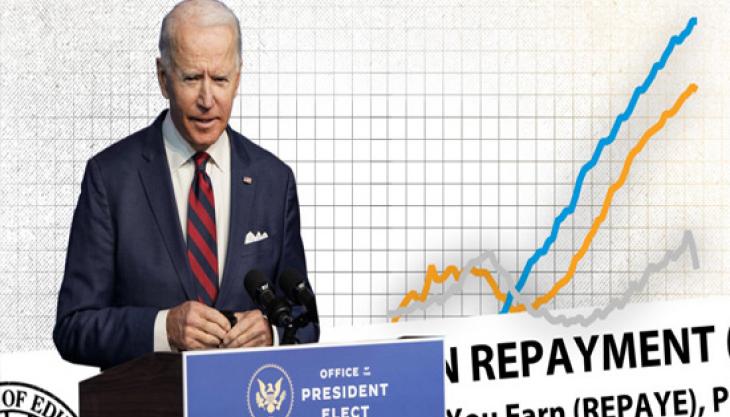How Congress Tightened Bankruptcy Laws Affecting Student Loans
Submitted by S. Patterson on Wed, 04/06/2022 - 11:26am

Joe Biden Student Loan Debt
Without singling out student debtors, Biden argued at a February 2001 hearing that “something’s rotten in Denmark” because so many people were declaring bankruptcy during a booming economy. “An awful lot of people are discharging debt that shouldn't,” Biden said. “Something's going on here. And it says to me it's got to be tightened.” Biden said during a March 2020 presidential debate on CNN that he didn't like the 2005 legislation but that he worked with Republicans to improve it. One of the bill's provisions required undue hardship to wipe out private student loans in addition to government loans. At the time, he was campaigning against Sen. Elizabeth Warren, D-Mass., who proposed to forgive $50,000 in student loans for each borrower and eliminate the onerous undue hardship standard.
Austin Smith, a New York bankruptcy lawyer, "He has instructed his Department of Education to fight these things tooth and nail, which I think is really unforgivable." "I did not like the rest of the bill, but I improved it," Biden said of the 2005 measure. Biden pledged during the campaign to "end the absurd rules that make it nearly impossible to discharge student loan debt in bankruptcy." He also campaigned for "an immediate cancellation of a minimum of $10,000 of student debt per person." But lawyers and student advocates doubt Biden will overhaul bankruptcy law. "He had no intention of doing that," Austin Smith, a New York bankruptcy lawyer, told USA TODAY. "He has instructed his Department of Education to fight these things tooth and nail, which I think is really unforgivable." Pamela Foohey, a bankruptcy law professor at Cardozo Law School in New York, said potential administration changes in how bankruptcy cases should be handled should happen more urgently. "I think they could work faster," Foohey told USA TODAY. "It’s been too long." At his January news conference, Biden breezed past a question about forgiving $10,000 per borrower in student debt but has said he would sign legislation if Congress approves it.